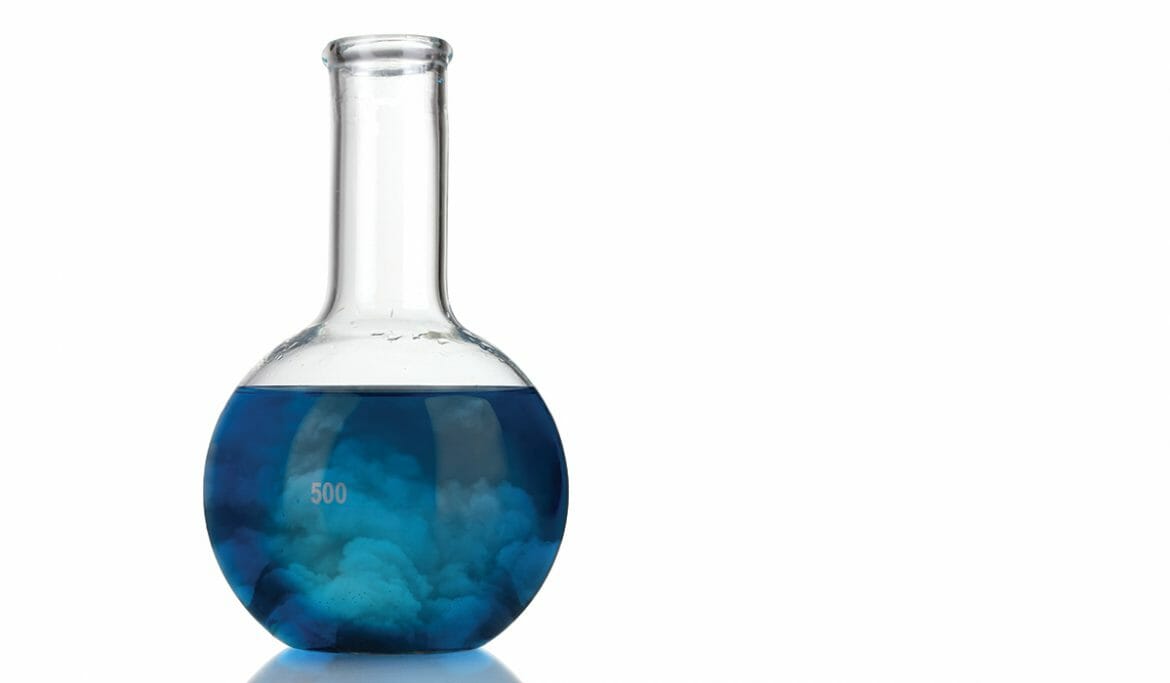One MTSU professor’s work wields analytical chemistry to curb pollution and its ill effects
Ngee Sing Chong, a professor of Chemistry, is director of the MTSU Interdisciplinary Microanalysis and Imaging Center. From 2004 to 2008, he also served on theTennessee Air Pollution Control Board to address air quality issues in Tennessee and helped formulate strategies for pollution control. Prior to coming to Tennessee and MTSU, Chong worked for the Texas Commission on Environmental Quality, monitoring air pollutants at industrial sites in Texas.
Clearly, Chong knows a thing or two about clean air. The air quality expert applies analytical instrumentation for studying environmental pollution and health-related issues. From electrochemistry to chromatography, mass spectrometry, atomic and molecular spectroscopy, and electron microscopy, he works to solve problems related to environmental risks to human health.
HIS RESEARCH INTERESTS INCLUDE THE AIR QUALITY IMPACT OF WILDFIRES
ON THE HEALTH OF FIREFIGHTERS, THE EFFECTS OF TOBACCO SMOKE
AND ELECTRONIC CIGARETTE EMISSIONS ON SMOKERS,
METHODS FOR REMOVING AIR POLLUTANTS FROM ENGINE EMISSIONS,
AND URBAN AIR QUALITY.
Chong partners with MTSU’s renowned Unmanned Aircraft Systems (UAS) Operations program to carry out chemical cartography. “For the study of emissions from wildfires, it is especially beneficial to use air-sampling drones for tracking the dispersion of pollutants by real-time monitoring of carbon monoxide, inhalable particulate matter, and other toxicants, so that the extent of the human population affected by poor air quality can be estimated accurately,” he said.
Chong made a major contribution to the field of analytical chemistry with his development of a prototype instrument, combining gas chromatography with inductively coupled plasma-mass spectrometry (GC-ICP-MS). This technique allows the quantitative analysis of toxic compounds like methyl mercury, tributyltin, and dimethyl arsine that may be found in contaminated seafood. Various methods based on GC-ICP-MS have been used by industrial laboratories, government research institutes, and academic research groups. Chong’s research group has recently discovered that surface-enhanced Raman scattering (SERS) can be used for trace analysis of aromatic amines, many of which are carcinogenic and may be generated as waste products of dyes used in textile and leather industries.
Currently, Chong is collaborating with researchers at the Shelby County Health Department and University of Memphis in the air quality study of Memphis and surrounding areas. Results indicate that there are several chlorinated and fluorinated compounds detected that are not in the U.S. Environmental Protection Agency’s toxic release inventory list and yet may be significant from the standpoint of risk assessment. MTSU
CASES IN POINT
Here are five externally funded projects faculty researcher Ngee Sing Chong has completed while at MTSU.
• Atmospheric study of the composition of volatile organic compounds from the biogenic sources—Research Experience for Undergraduates program of the National Science Foundation
• Reducing exposure to airborne chemical toxics (REACT) via Community-Scale Air Monitoring in Memphis—Community Air Toxics Program of the Environmental Protection Agency
• Monitoring the pollutants released by fracking facilities in Karnes County, Texas—subcontract of a Northeastern University project sponsored by Earthwatch
• Release of volatile organic compounds from pig carcasses subjected to different disposal methods—Southeast Regional Research Initiative of the Oak Ridge National Laboratory
• Development of biomass-derived fuel additives for improving the emissions profiles of gasoline or diesel combustion—Tennessee Department of Environment and Conservation
by Drew Ruble
Read MTSU RESEARCH here: MTSU RESEARCH- Research for Tennessee Vol. 1 No. 1 Spring 2018


COMMENTS ARE OFF THIS POST